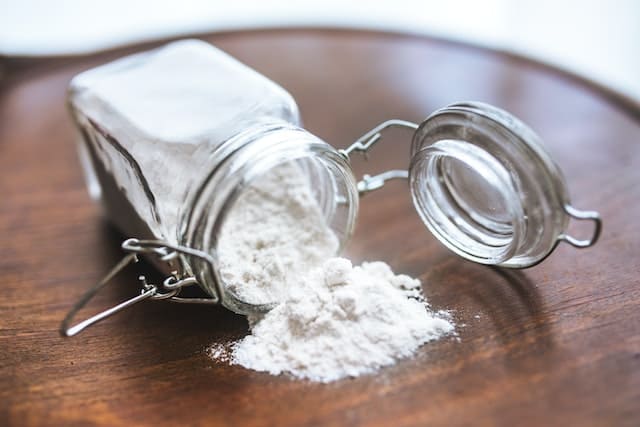Powdered formula is a popular choice for parents who want a convenient and cost-effective way to provide nutrition to their infants.
However, it is important to know how to tell if powdered formula is bad, as using expired or spoiled formula can lead to potential health risks for your baby.
Recognizing bad powdered formula can be tricky, as it may not always be immediately obvious. There are several signs to look out for, including changes in color, texture, and smell.
Additionally, understanding the ingredients in powdered formula and how they can affect its quality can help you determine if it is still safe to use.
Proper storage of powdered formula is also crucial in ensuring its safety and effectiveness. Temperature and moisture can have a significant impact on the quality of the formula, so it is important to store it in a cool, dry place and to use it within the recommended time frame.
By following these guidelines, parents can ensure that their babies are receiving safe and nutritious formula.
Key Takeaways
- Recognizing bad powdered formula involves looking for changes in color, texture, and smell.
- Understanding powdered formula ingredients can help determine if it is still safe to use.
- Proper storage, including temperature and moisture control, is crucial in ensuring the safety and effectiveness of powdered formula.
Recognizing Bad Powdered Formula
When it comes to feeding babies, parents rely on powdered formula as a convenient and safe option. However, it is essential to ensure that the powdered formula is not bad before feeding it to the baby.
Here are some signs to look for to recognize if powdered formula is bad.
Color and Appearance
Powdered formula should be white or cream-colored. If the powder is discolored or has a strange color, it could be a sign that it’s gone bad. Additionally, if the powder is clumping, has particles, or is floating in the container, it is a red flag.
Smell and Odor
Powdered formula should not have any strange or unpleasant smell. If it has a cheesy smell or a rancid odor, it is a clear indication that it has gone bad.
Separation of the Ingredients
If the powdered formula has separated into layers, it is a sign that it has gone bad. The ingredients should be mixed uniformly, and if they have separated, it is best to discard the formula.
Taste
While babies cannot communicate the taste of the formula, parents can taste it themselves to check if it is bad. If the powdered formula has an off-taste or an unpleasant flavor, it is best to discard it.
In conclusion, it is essential to recognize the signs of bad powdered formula to ensure that the baby is not exposed to any harmful substances. Parents should always check the color, smell, and appearance of the powdered formula before feeding it to their baby.
Understanding Powdered Formula Ingredients
Powdered formula is a convenient and popular way to feed infants. However, it is important to understand the ingredients in powdered formula to ensure that it is safe and nutritious for your baby.
Powdered formula typically contains a combination of proteins, carbohydrates, fats, vitamins, and minerals. The specific ingredients and their amounts can vary depending on the brand and type of formula.
Some common ingredients in powdered formula include:
- Whey protein: This is a high-quality protein that is easily digested by infants.
- Lactose: This is a natural sugar found in milk that provides energy for the baby.
- Vegetable oils: These provide essential fatty acids that are important for brain development.
- Vitamins and minerals: Powdered formula is fortified with a variety of vitamins and minerals, including iron, calcium, and vitamin D.
Organic powdered formula is also available, which uses organic ingredients and avoids the use of synthetic pesticides and fertilizers. However, it is important to note that organic formula is not necessarily healthier or more nutritious than non-organic formula.
It is important to carefully read the label of powdered formula to ensure that it contains all of the necessary nutrients for your baby’s growth and development. If you have any concerns about the ingredients in your baby’s formula, consult with a healthcare professional.
Proper Storage of Powdered Formula
Proper storage of powdered formula is crucial to ensure that it remains safe and fresh for your baby.
Here are some tips to help you store powdered formula correctly:
- Store the powdered formula in a cool, dry place away from direct sunlight. This will help prevent the formula from spoiling or becoming contaminated.
- Keep the powdered formula in an airtight container to prevent moisture and air from getting in. This will help maintain the freshness of the formula.
- Do not store the powdered formula in the refrigerator unless instructed to do so by the manufacturer. Refrigeration can cause the formula to clump and become unusable.
- Once the container of powdered formula has been opened, use it within a month. This will help prevent the formula from spoiling or becoming contaminated.
- Check the expiration date on the container of powdered formula before using it. Do not use the formula if it has expired.
By following these tips, you can ensure that your baby’s powdered formula remains safe and fresh for use.
Learn more from a different post: What To Do With Expired Baby Formula
Effects of Temperature and Moisture
Powdered formula can deteriorate quickly if exposed to extreme temperatures and moisture. It is important to store it properly to ensure that it remains safe for consumption.
Here are some of the effects of temperature and moisture on powdered formula:
Heat
High temperatures can cause the formula to spoil quickly. When exposed to heat, the formula can break down and lose its nutritional value. It can also become a breeding ground for bacteria, which can cause illness.
Air
Air can cause the formula to become stale and lose its flavor. It can also cause the formula to clump together, making it difficult to mix properly.
Sun
Exposure to sunlight can cause the formula to spoil quickly. The UV rays in sunlight can break down the nutrients in the formula, making it less nutritious. It can also cause the formula to become rancid.
Moisture
Moisture is one of the biggest enemies of powdered formula. When exposed to moisture, the formula can become clumpy and difficult to mix. It can also become a breeding ground for bacteria, which can cause illness.
Extreme Temperatures
Extreme temperatures, both hot and cold, can cause the formula to spoil quickly. Freezing temperatures can cause the formula to become lumpy and difficult to mix. High temperatures can cause the formula to break down and lose its nutritional value.
In summary, it is important to store powdered formula in a cool, dry place away from direct sunlight and moisture. This will help to ensure that the formula remains safe and nutritious for your baby to consume.
Expiration and Shelf Life
Powdered formula has a shelf life of about 2 years from the date of manufacture. The expiration date is usually printed on the bottom of the can or on the packaging.
It is important to check the expiration date before using the formula to ensure that it is not expired.
Expired baby formula can be dangerous to use as it may not provide the necessary nutrients for the baby’s growth and development. Additionally, expired formula can also pose a risk of bacterial contamination, which can cause illness in babies.
It is also important to note that once the can of powdered formula is opened, the shelf life decreases significantly. After opening, the formula should be used within a month to ensure that it is still safe and effective.
If the powdered formula has expired or if it has been opened for more than a month, it should be discarded. It is not recommended to use expired or old formula as it can be harmful to the baby’s health.
In summary, it is important to check the expiration date of powdered formula before using it and to use it within a month after opening. Expired or old formula should be discarded to ensure the baby’s safety and health.
Prepared and Leftover Formula
Once powdered formula has been mixed with water, it is considered prepared formula. Prepared formula should be used within two hours of preparation and should not be left at room temperature for more than one hour. If the formula has been refrigerated, it can be kept for up to 24 hours.
However, it is important to note that the longer the formula is stored, the greater the risk of bacterial growth.
If there is leftover formula after a feeding, it should be discarded. It is not safe to reheat and reuse leftover formula, as it can become contaminated with bacteria. Additionally, if the formula has been warmed, it should not be refrigerated and saved for later use.
It is important to always follow the instructions on the formula packaging and to use clean bottles and utensils when preparing and storing formula. If there are any concerns about the safety of the formula, it is best to discard it and prepare a fresh batch.
In summary, prepared formula should be used within two hours of preparation and refrigerated formula can be kept for up to 24 hours. Leftover formula should be discarded and not reheated or saved for later use.
Always follow the instructions on the formula packaging and use clean utensils and bottles when preparing and storing formula.
Potential Health Risks
Using bad powdered formula can lead to serious health risks. Powdered formula can become contaminated with bacteria during production, packaging, or storage, leading to the development of bacterial infections and foodborne illnesses.
This can cause a range of symptoms, including diarrhea, fever, dehydration, and more.
One of the most common bacterial infections associated with powdered formula is Cronobacter infection. This is a serious infection that can affect infants and young children, and can lead to severe illness or even death.
Symptoms of Cronobacter infection can include fever, diarrhea, vomiting, and lethargy.
In addition to Cronobacter infections, other bacterial infections can also occur if powdered formula is contaminated. These infections can cause a range of symptoms, including fever, diarrhea, and dehydration.
It is important to note that infants and young children are particularly vulnerable to these infections, and can become seriously ill if they are exposed to contaminated formula.
To avoid these potential health risks, it is important to always check the quality of powdered formula before use. This includes checking the expiration date, as well as looking for any signs of contamination or spoilage.
gfIf you suspect that powdered formula may be contaminated, it is important to discard it immediately and seek medical attention if necessary.
Overall, it is essential to prioritize safety and quality when it comes to feeding infants and young children. By being aware of the potential health risks associated with bad powdered formula, parents and caregivers can take steps to ensure the health and well-being of their children.
Alternatives to Powdered Formula
While powdered formula is a popular choice for many parents, there are alternative options available for those who prefer not to use it.
Here are some alternatives to consider:
Liquid Formula
Liquid formula is a pre-mixed, ready-to-use formula that eliminates the need for any mixing or measuring. It is available in both concentrate and ready-to-feed forms.
While it can be more expensive than powdered formula, it can be a convenient option for parents who are always on-the-go or who have difficulty measuring out the correct amount of powder.
Breastfeeding
Breastfeeding is the most natural and cost-effective way to feed a baby. Breast milk provides all the necessary nutrients for a baby’s growth and development, and it can also help boost the baby’s immune system.
However, not all mothers are able to breastfeed, and some may choose not to for personal or medical reasons.
Baby Formulas
There are different types of baby formulas available, such as soy-based, lactose-free, and hypoallergenic formulas.
These formulas are available in both liquid and powdered forms. While they may not be as convenient as liquid formula, they can be a good alternative for parents who want to avoid using powdered formula.
In conclusion, there are several alternatives to powdered formula that parents can consider. Each option has its own benefits and drawbacks, so it’s important to choose the one that works best for both the baby and the parent.
Cost and Quality Considerations
When it comes to choosing powdered formula, cost and quality are two important factors to consider. Cheaper options may be more appealing, but it’s important to keep in mind that the nutritional value and freshness may be compromised.
Higher quality formulas often have better nutritional value and are made with fresher ingredients. However, they may come at a higher cost. It’s important to weigh the cost and quality considerations to determine the best option for your baby.
In addition to cost and nutritional value, preference also plays a role in choosing powdered formula. Some babies may prefer certain brands or types of formula, which may affect the overall cost.
Ultimately, it’s important to choose a powdered formula that meets your baby’s nutritional needs and fits within your budget. It’s also important to check the expiration date and storage instructions to ensure the formula remains fresh and safe for your baby to consume.
Safety Precautions
When it comes to feeding a baby, ensuring safety is of utmost importance. Here are a few safety precautions that one should keep in mind while preparing and feeding powdered formula:
Wash Your Hands
It is essential to wash your hands thoroughly with soap and water before preparing the formula. This ensures that no harmful bacteria or germs are transferred to the baby through the formula.
It is also recommended to wash your hands after changing a diaper or handling anything that may be contaminated.
Sterilize Feeding Bottles
It is necessary to sterilize the feeding bottles before using them to feed the baby. This ensures that any harmful bacteria or germs that may be present in the bottle are eliminated. Sterilization can be done by boiling the bottles in water for at least five minutes or by using a sterilizer.
Prepare the Formula as per Instructions
It is essential to prepare the formula as per the instructions provided on the packaging. This ensures that the formula is prepared correctly and is safe for the baby to consume. It is also recommended to use the formula within the expiry date mentioned on the packaging.
Check for Signs of Spoilage
Before feeding the baby, it is necessary to check the formula for any signs of spoilage. These signs may include a foul odor, clumping, or discoloration. If any of these signs are present, it is recommended to discard the formula and prepare a fresh batch.
Follow Food Safety Guidelines
It is essential to follow food safety guidelines while preparing and feeding the formula. This includes keeping the formula at the correct temperature and not leaving it out for too long. It is also recommended to discard any unused formula after feeding the baby.
By following these safety precautions, parents can ensure that the powdered formula is safe for their baby to consume.
Related Post: Formula-Fed Baby Spitting Up Clear Liquid
Frequently Asked Questions
How long does baby formula powder last once opened?
Once opened, baby formula powder can last up to a month if stored in a cool, dry place. It is important to follow the manufacturer’s instructions for storage and use. Always check the expiration date before using any formula.
What does spoiled formula look like?
Spoiled formula may appear clumpy or have a strange odor. It may also have a sour taste. If you notice any of these signs, do not use the formula and discard it immediately.
What to do with expired baby formula powder?
Expired baby formula powder should be discarded and not used. It is important to check the expiration date before using any formula. Do not donate or give away expired formula as it may be unsafe for consumption.
Formula expired by one month – is it still safe?
It is not recommended to use formula that has expired by one month. It is important to follow the expiration date on the packaging and not use expired formula.
Can you use expired powdered baby formula?
Expired powdered baby formula should not be used. It is important to follow the expiration date on the packaging and not use expired formula. Expired formula may not provide the necessary nutrients for your baby and may even be harmful.
How long does powder formula can last?
Powder formula can last up to a year if unopened and stored in a cool, dry place. Once opened, it can last up to a month if stored properly. It is important to follow the manufacturer’s instructions for storage and use. Always check the expiration date before using any formula.

Iesha is a loving mother of 2 beautiful children. She’s an active parent who enjoys indoor and outdoor adventures with her family. Her mission is to share practical and realistic parenting advice to help the parenting community becoming stronger.



